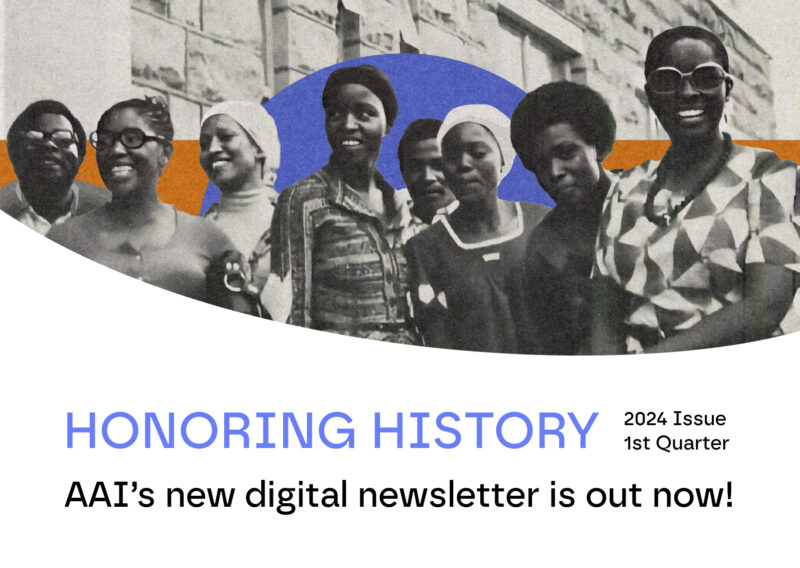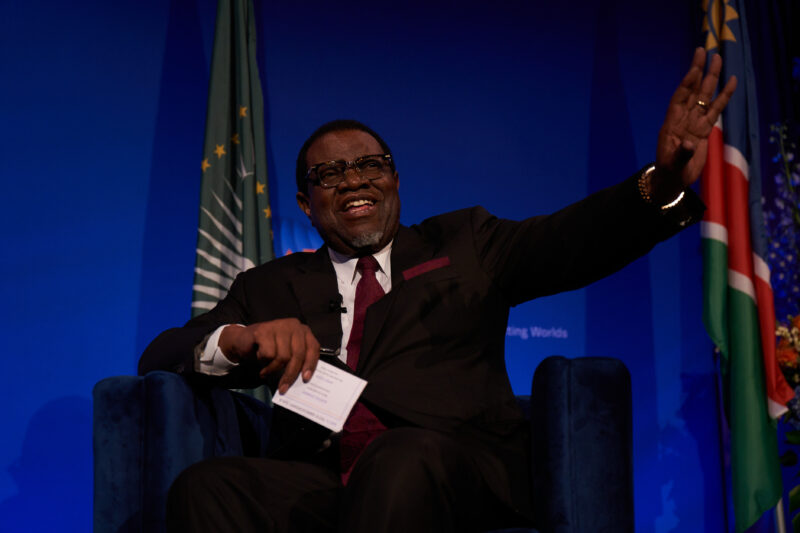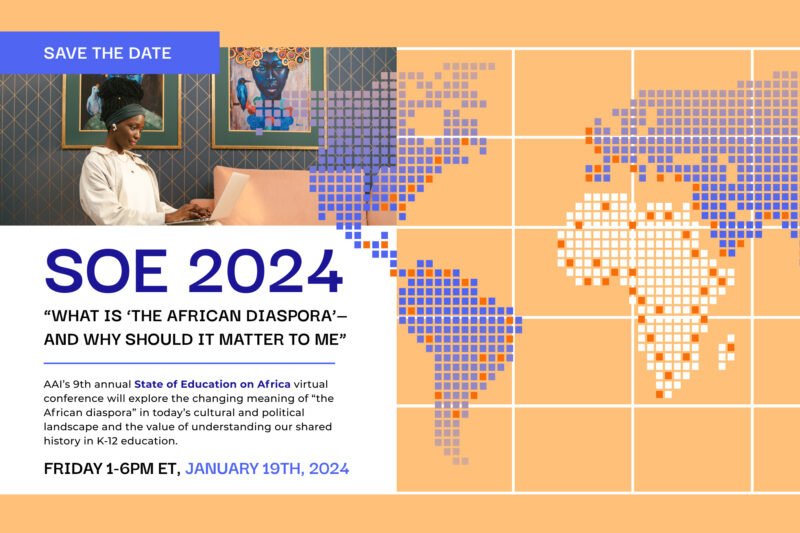From the Archives: Interview with Former Ghana Education Secretary Joyce Aryee
AAI will feature a quarterly “From the Archives” blog, highlighting historical milestones in AAI and African history. This blog post features verbatim historical documents from AAI’s files and articles from Africa Report, a monthly publication of in-depth analysis and reports chronicling the continent’s dramatic political and economic developments.
Published from 1956 through 1995, Africa Report became the most significant Africa-focused publication in the U.S.
Africa Report, March-April 1985. Volume 30, Number 2

From The Africa Report magazine archives
Joyce Aryee, Ghana’s Secretary for Education, was interviewed in 1985 by The Africa Report, where she spoke about how the education policies of Ghana’s first president, Kwame Nkrumah, had helped women to play a significant role in the country’s political and economic development.
Africa Report: It seems then that changing attitudes is ultimately a question of education. As Secretary for Education, do you foresee any way to focus in on this problem?
Aryee: At the moment, we have some fundamental problems with our system of education because of lack of resources. We have neglected the lower cycles of education, the very foundations of our educational system. So at the moment, the concentration in this ministry is on improving the foundations of education without which we cannot have good secondary or tertiary education. But the ministry is acutely aware of this problem because we have noticed that in the lower cycles, at the primary level, many girls go to school and do quite well. By the time they get to the upper primary level, they are beginning to slacken.
When they get to secondary school, especially by the time they get to form three, before they sit for their “O levels,” the slackening increases because somehow there is this inbuilt attitude that, “It doesn’t matter, I don’t need to go that far.”
I have been talking to some of the heads of the female schools for starters to try to come to grips with some of the problems and to see just where we can begin… [W]omen’s organizations are trying to enhance the confidence of women, because once women are confident of what they can do and of what they have been doing, and they become aware of how important it is, I think that we will be able to get over these attitudes. Of course, we can’t leave the men aside because they also have some macho problems to deal with.
In Ghana, improving the position of women ought to be seen as a national effort because what we will then do is to improve the quality of life of everybody. If a section of society is being left behind because of certain specific problems, then we address those problems rather than seeing it as a male/female issue which then becomes a dichotomy and is more difficult to resolve.
Africa Report: Despite the problems you have outlined, it still appears that there are many more women in Ghana in positions of political and economic power than in many other African countries. Why is that?
Aryee: As I said earlier, even before our very dynamic first president, Dr. Kwame Nkrumah. the value of education for women was recognized, so quite early, we had women doctors and lawyers, and women in the humanities. I think it was the value that was attached to education which propelled
women to higher ranks.
In politics, it was realized that if you move the women, you move the entire nation because there is a woman in every home. And once you can create a greater awareness and a sense of urgency and purpose among women, you can move mountains. This is what has characterized this nation.



